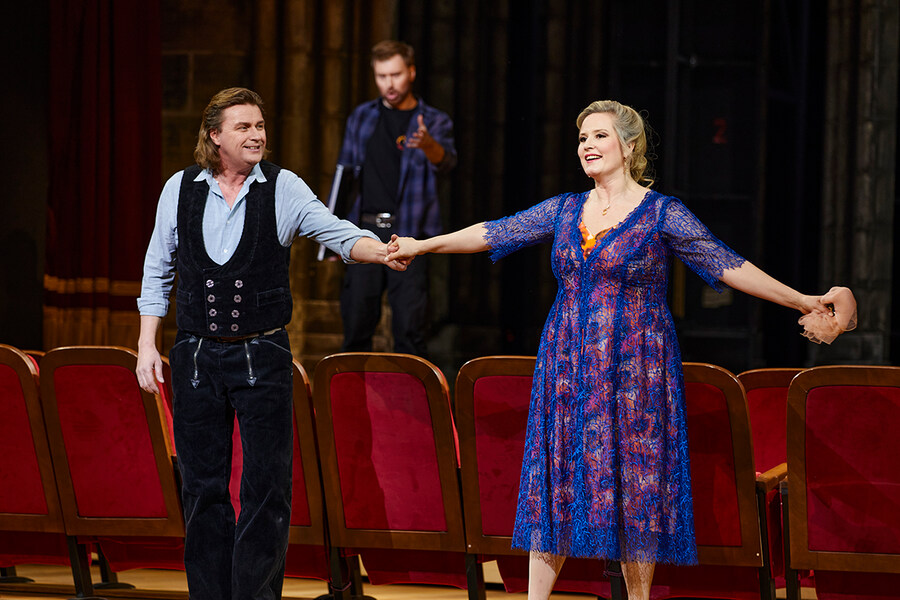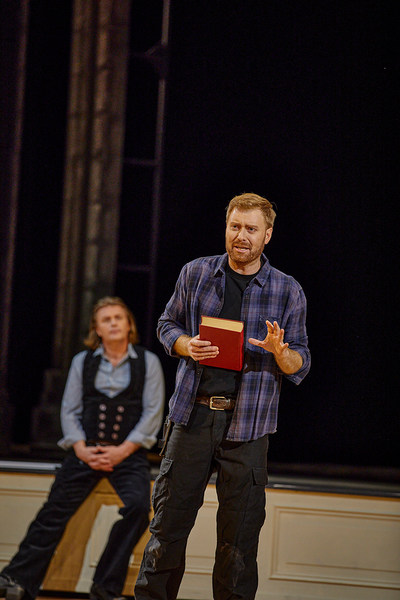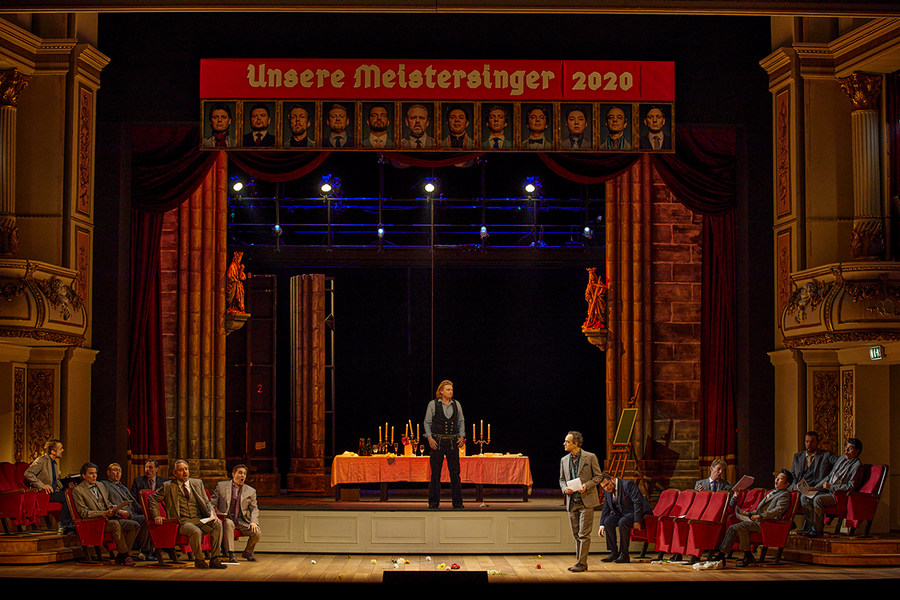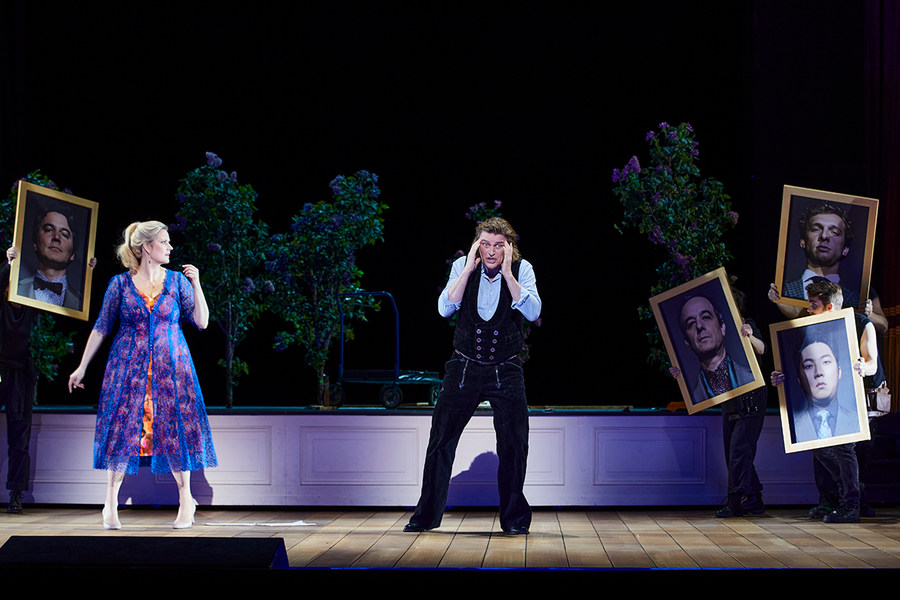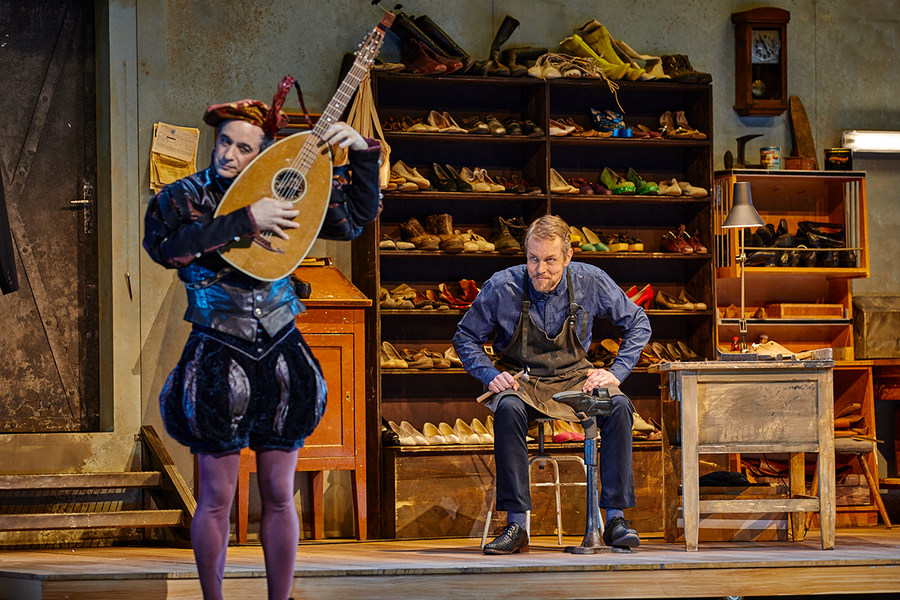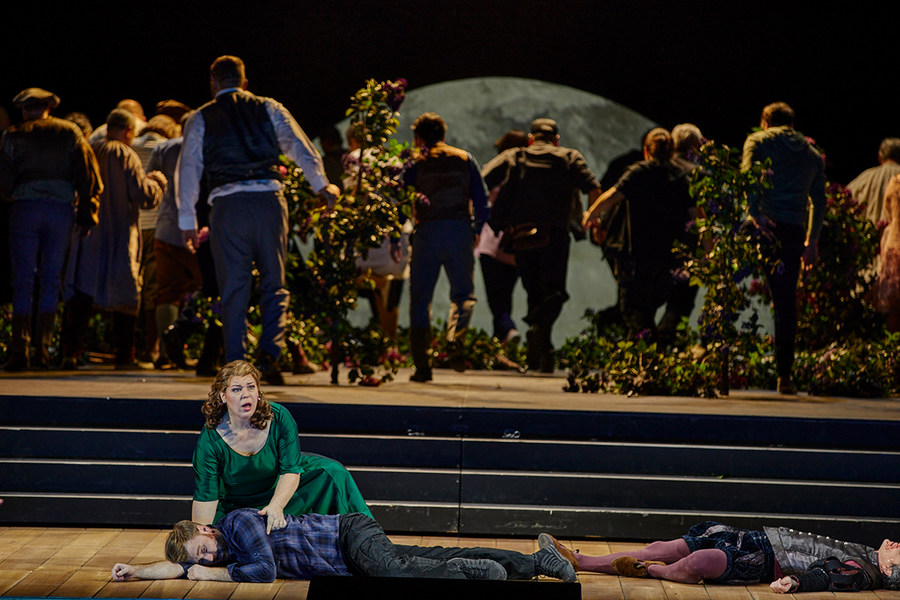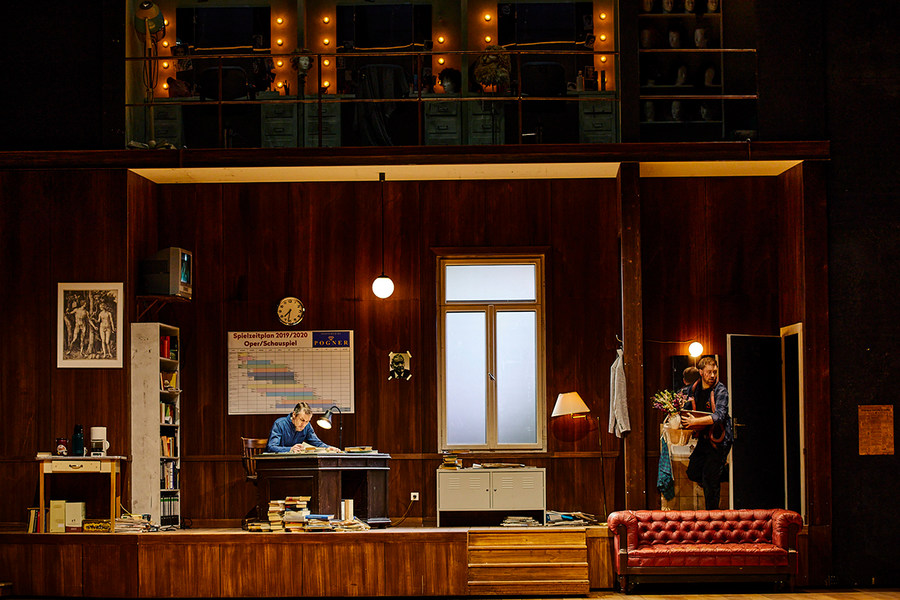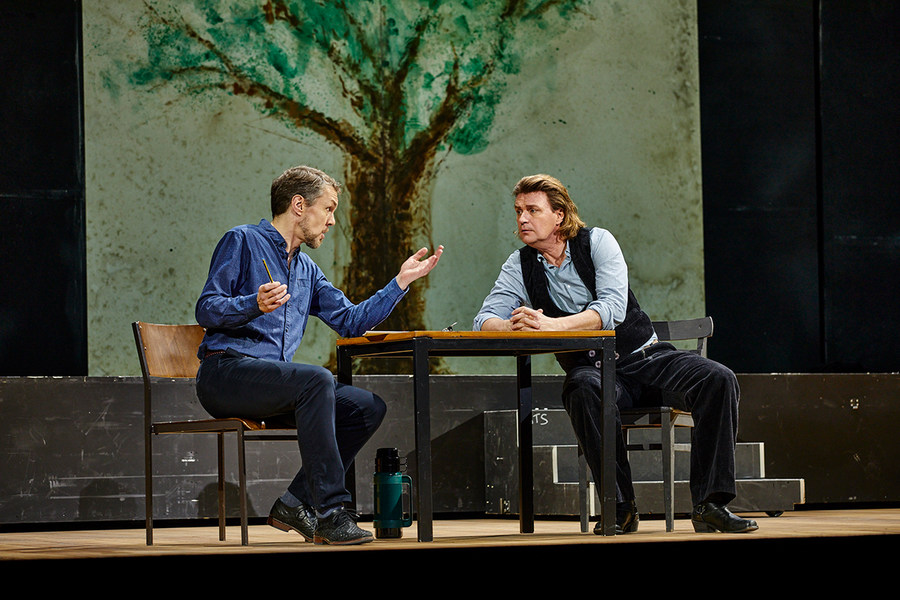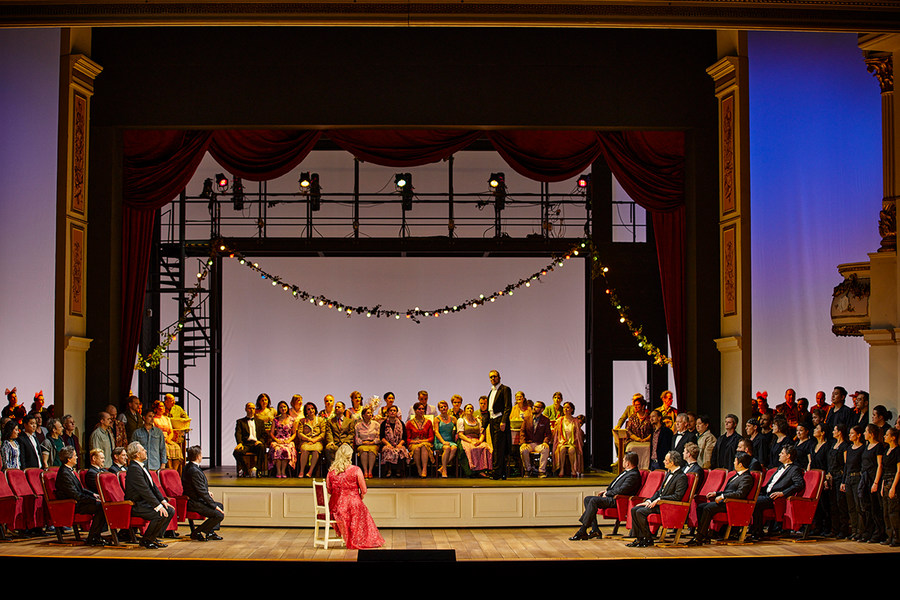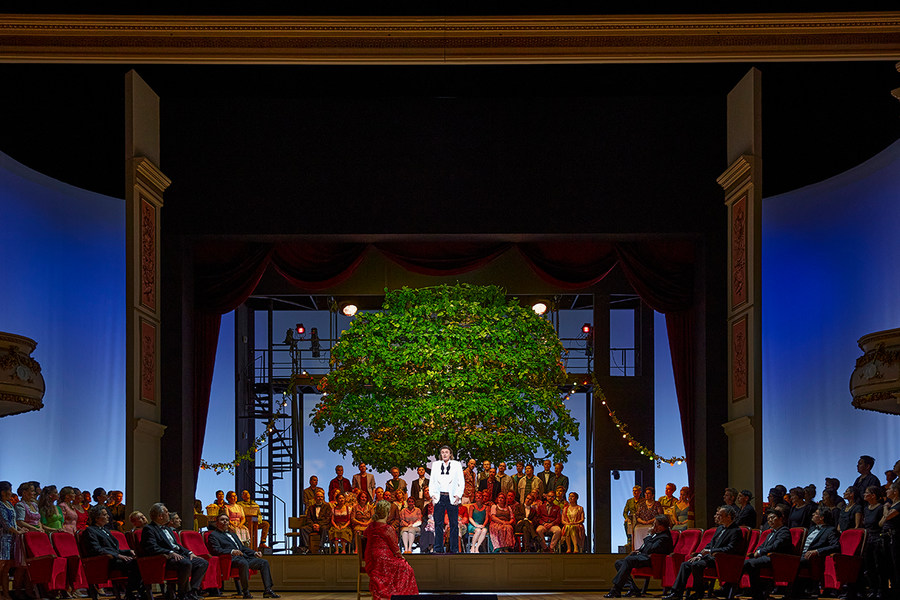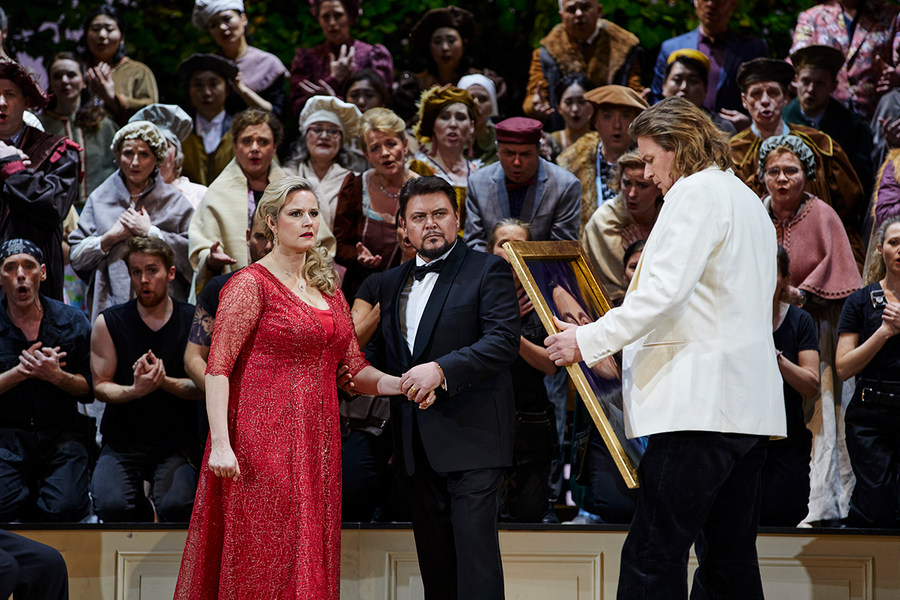Opera in three acts
Libretto by the composer
Performed in German with German and English surtitles
Premiere
26. January 2020,
No further performances in the current season.
Explore
Stücktrailer
Die Meistersinger von Nürnberg
Richard Wagner’s Die Meistersinger von Nürnberg from 1868 is one of the composer’s most popular works. The story takes place in medieval Nuremberg around midsummer, where the widowed cobbler Hans Sachs, the town clerk Sixtus Beckmesser and the young noble adventurer Walther von Stolzing argue about the lovely Eva in song and poetry. Things even get a little physical. Why? Because the goldsmith Pogner, wishing to highlight his veneration of art, has offered his much-coveted daughter as a prize in the annual singing competition. And so Die Meistersinger von Nürnberg is a musical masterpiece that forces us to consider the importance of art – here music – in our lives and in society at large. Reason enough for director Jens-Daniel Herzog to relocate this musical-comedic debate about art and life into the present day and, specifically, the world of theatre and opera.
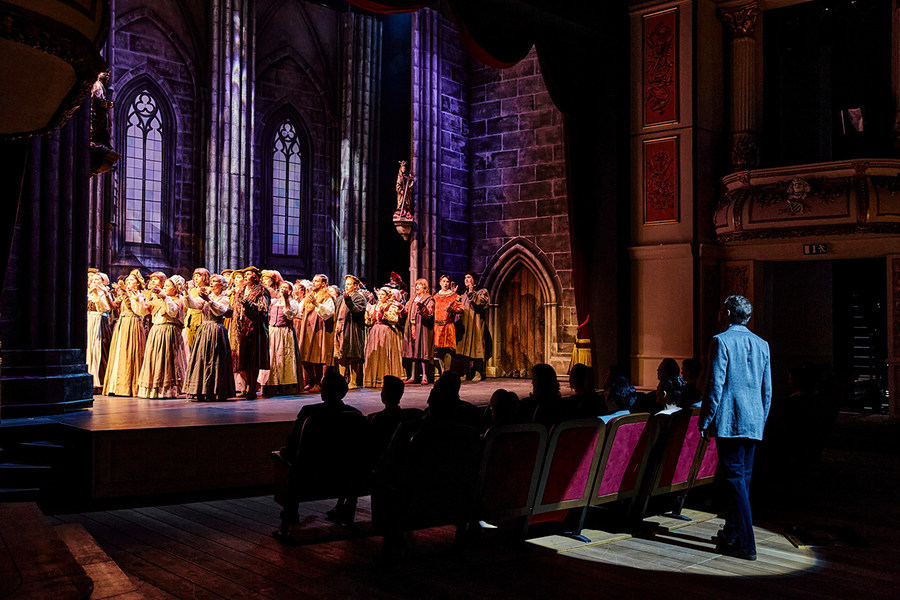
Gallery
